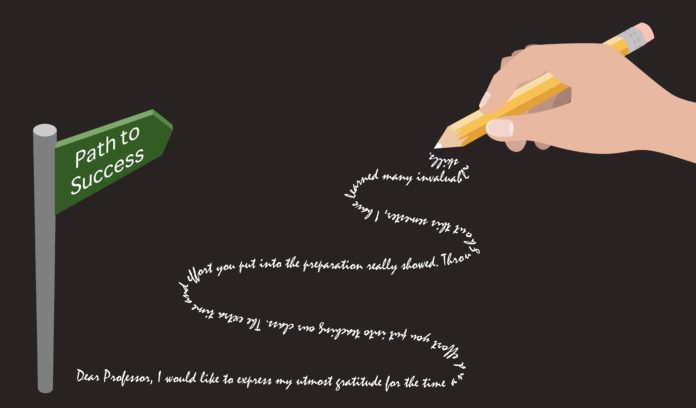Whether you’re sending a note to a professor or following up on a job application, knowing how to write an email professionally and eloquently is a skill college students should invest time in learning. Thanks to mobile technology, email writing has become much easier to execute, but also much easier to mess up. Slang, text-speech and informal greetings have become much more common in our fast-moving technological communication and can degrade the professionalism of an email. However, learning to write a professional email is not a lost cause and can sometimes be the difference between getting a job or a better grade in a class.
When writing a professional email, it’s important to think about your tone. Text speech is often short and to the point, but sometimes that can come off as abrasive or dismissive in an email. Soften your speech with a polite introduction, where you address the person by the most professional standards, and introduce yourself. Instead of simply saying “hey” as we might do in a text conversation, starting with “Hello Mr./Mrs./Ms./Dr. ____” can help you seem like you have more respect for their title and status. Sometimes this may mean needing to do some research to identify the individual’s preferred title. It will put the person at ease and encourage them to take your note seriously.
From there, you can get directly to the point, or you can ease into it with a conversational greeting, such as “I hope this message finds you well” or something similar. Don’t assume anything about their personal life, unless you actually know them personally — shy away from mentioning spouses, work life or children.
Once you’ve politely greeted them, continue on to your point — keep it succinct and try not to write in run-on sentences. Make it clear what you are asking or proposing, and phrase it in a way that doesn’t come off as a demand, but rather as a request. Instead of saying “I need a day off” say “I’m writing to request some time off.” Changing the tone of the email from demanding to inquisitive immediately shows respect for the authority figure and can make them much more interested in what you have to say.
After you’ve asked what you need to ask of the recipient, sign off with a final thank you, and sign your full name with a sincere closing.
At the end of the day, writing a good email is just as integral in a workplace as basic technical skills or communication skills. It can put you leagues above other job applicants, and is also a skill you can acquire at Baylor. Not only does the Career and Professional Development office offer plenty of writing help, but Baylor also offers an technical writing class, ENG 3300, which teaches students how to write for professional markets. If you’re interested in learning how to write emails more professionally, this class is definitely something to consider.






